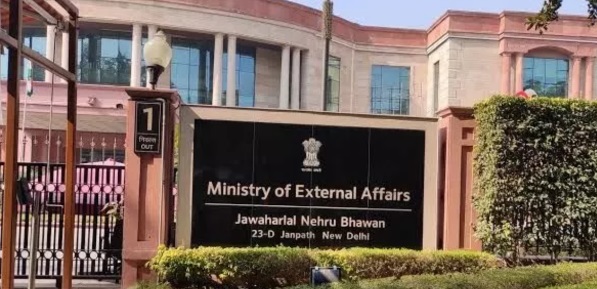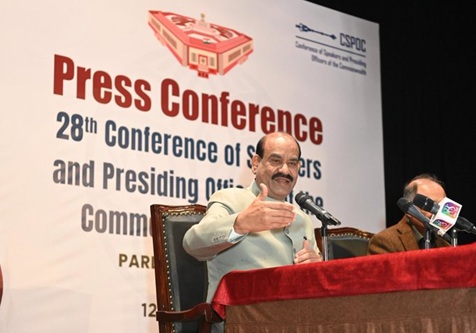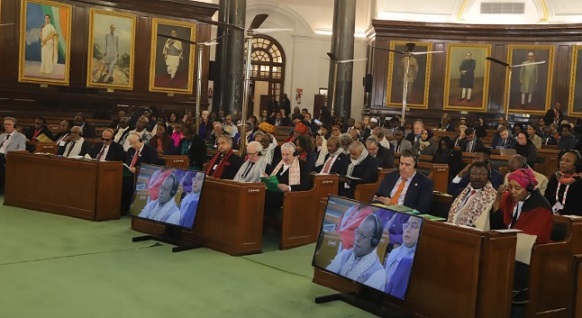
Last Updated on October 8, 2025 3:57 pm by BIZNAMA NEWS
As Digital Boom Fuels Cybercrime, India Ramps Up Defenses
R. Suryamurthy / NEW DELHI
India’s rapid digital expansion, celebrated for connecting over 86% of households to the internet, has simultaneously created a massive new attack surface for cybercriminals. As the country prepares for the India Mobile Congress 2025—where cybersecurity is a key focus—fresh data reveals the dual challenge: a surge in cyber incidents and an aggressive, coordinated government crackdown.
Following Prime Minister Narendra Modi’s vision that “cyber security becomes an integral part of our national security,” the government is mobilizing significant resources to protect the nation’s $22.68 lakh cyber incidents reported in 2024—more than double the $10.29 lakh recorded in 2022.
The financial stakes are immense, with cyber frauds totaling ₹36.45 lakh reported on the National Cyber Crime Reporting Portal (NCRP) as of early 2025.
War on Frauds: Legislation and Enforcement
The Union Government has established a comprehensive framework targeting cybercrime syndicates, which are often linked to “fraud factories” in Southeast Asia. Key measures highlight a zero-tolerance approach:
• Financial Shield: The Union Budget 2025-2026 allocated a significant ₹782 crore for cybersecurity projects, underscoring the issue’s national security priority.
• Rapid Disruption: Authorities have proactively blocked over 9.42 lakh SIM cards and 2,63,348 IMEIs (International Mobile Equipment Identity) tied to fraudulent activities.
• Gaming Ban: To curb illicit digital ventures, including online betting apps that generated over ₹400 crores in criminal proceeds, the Promotion and Regulation of Online Gaming Bill, 2025 was passed. The legislation imposes a complete ban on online money gaming and its promotion.
• Law Enforcement Boost: The Indian Cybercrime Coordination Centre (I4C) has been instrumental in disabling criminal infrastructure, proactively blocking 3,962 Skype IDs and 83,668 WhatsApp accounts linked to frauds. The Samanvaya Platform, with its ‘Pratibimb’ module, has aided in the arrest of 12,987 accused by mapping criminal linkages.
New Threats, New Defenses
Cybercriminals are quickly evolving, leveraging sophisticated techniques that challenge traditional security. Deepfakes leveraging AI, along with phishing and spoofing scams, are on the rise. Even the immensely popular Unified Payments Interface (UPI) has been targeted through compromised mobile numbers, prompting the Department of Telecommunications (DoT) to launch the Financial Fraud Risk Indicator (FRI) to classify suspicious numbers.
On the defense front, key agencies are working in concert:
• CERT-In (Indian Computer Emergency Response Team) has been active in threat mitigation, conducting 109 cybersecurity mock drills to enhance national cyber resilience.
• The Cybercrime Helpline 1930 has provided an immediate lifeline, enabling financial institutions to save over ₹5,489 crore across more than 17.82 lakh complaints via the Citizen Financial Cyber Fraud Reporting and Management System (CFCFRMS).
• The National Cyber Crime Reporting Portal (www.cybercrime.gov.in) remains the central hub for citizens, offering specialized reporting for crimes targeting women and children.
Legal and Human Infrastructure Strengthened
India’s cybersecurity is underpinned by a robust legal framework, including the Information Technology Act, 2000, and the recent Digital Personal Data Protection Act, 2023, which mandates lawful data handling with user consent.
Crucially, the nation is investing heavily in human capital. Over 1,05,796 police officers are now registered on the CyTrain portal, receiving specialized training in cybercrime investigation. Furthermore, the Cyber Crime Prevention Against Women and Children (CCPWC) Scheme has established cyber forensic-cum-training laboratories across 33 states and trained over 24,600 personnel.
Global Stage for Digital Security
The fight against cybercrime is expected to take center stage at the 9th India Mobile Congress (IMC 2025), themed “Innovate to Transform,” which opens today in New Delhi. Cybersecurity will be a primary focus alongside discussions on 6G, AI, and telecom manufacturing.
As India continues its rapid 5G rollout, with 1.2 billion mobile subscribers and 970 million internet users, the government emphasizes that securing this vast digital ecosystem is a shared responsibility. While advanced forensics and analytics have bolstered national defenses, a forward path focused on citizen awareness through multi-platform campaigns remains crucial to making the vision of a truly safe Digital India a reality.







